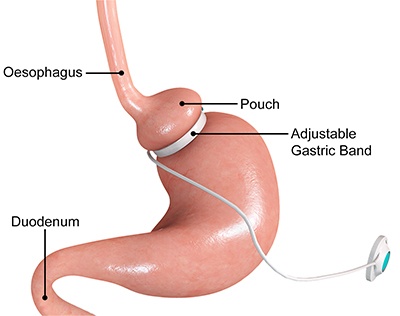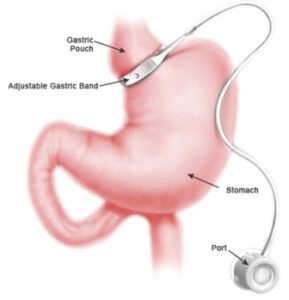
Understanding the Gastric Band in Dubai: A Comprehensive Guide
Dubai has become a global hub for medical tourism, offering state-of-the-art healthcare services in numerous specialties. Among these, bariatric procedures, particularly the gastric band, have gained significant popularity due to rising awareness about obesity-related health issues. This article delves into the essentials of the gastric band procedure in Dubai, exploring its benefits, risks, and what patients can expect before, during, and after the surgery.
What is the Gastric Band?
The gastric band, also known as laparoscopic adjustable gastric banding, is a minimally invasive bariatric surgery designed to help individuals lose weight by reducing their food intake. A silicone band is placed around the upper part of the stomach, creating a small pouch that limits the amount of food one can consume at a time. The band can be adjusted through a port under the skin, allowing for personalized control over the rate of weight loss.
Gastric band price in Dubai
To have the price of gastric band in Dubai, ask for a free online quote and you will have all the information.
The cost of gastric band Dubai will be communicated to you with all the details of your medical stay.
Why Choose Dubai for a Gastric Band?
Dubai stands out as a preferred destination for bariatric surgeries due to several factors:
- Advanced Medical Facilities: The city is home to internationally accredited hospitals and clinics equipped with cutting-edge technology.
- Highly Skilled Surgeons: Surgeons in Dubai are often internationally trained and have extensive experience in bariatric procedures.
- Cultural Sensitivity: The healthcare sector in Dubai caters to a diverse population, ensuring patient comfort and understanding of cultural needs.
- Comprehensive Aftercare: Clinics in Dubai emphasize holistic care, offering nutrition counseling, psychological support, and follow-up services.
Who is a Candidate for the Gastric Band?
The gastric band is not suitable for everyone. Candidates typically meet the following criteria:
- A Body Mass Index (BMI) of 40 or higher, or a BMI of 35 with obesity-related health conditions such as diabetes or hypertension.
- Previous unsuccessful attempts at weight loss through diet and exercise.
- Commitment to lifestyle changes and follow-up care post-surgery.
A thorough medical evaluation, including blood tests, imaging, and consultations, is essential to determine eligibility.
Preparing for the Procedure
Preparation is a crucial step for ensuring the success of the gastric band procedure. Here are the key aspects:
- Medical Assessment: Patients undergo a detailed health evaluation to rule out contraindications such as severe heart or lung conditions.
- Nutritional Guidance: Dietitians work with patients to establish pre-surgery dietary habits that aid in recovery and long-term success.
- Psychological Readiness: Counseling sessions may be conducted to ensure patients are mentally prepared for the lifestyle changes required after surgery.
- Pre-Operative Diet: A low-calorie, high-protein diet is often recommended two weeks before surgery to reduce liver size, making the procedure safer and more effective.

The Procedure: What to Expect
The gastric band procedure is performed under general anesthesia and usually takes about 30 to 60 minutes. It involves the following steps:
- Laparoscopic Access: Small incisions are made in the abdomen to insert a laparoscope and surgical instruments.
- Band Placement: The silicone band is positioned around the upper part of the stomach.
- Port Insertion: A small port is placed under the skin of the abdomen, connected to the band by a tube.
- Closure: The incisions are closed with sutures or surgical glue.
Since it is a minimally invasive procedure, patients typically experience shorter recovery times and less post-operative pain compared to traditional open surgeries.
Post-Surgery Recovery
Recovery after a gastric band procedure varies from person to person, but here are the general stages:
- Immediate Recovery: Patients are monitored in a recovery room for a few hours post-surgery and may need to stay overnight.
- Diet Progression:
- Week 1: Liquid diet to allow the stomach to heal.
- Weeks 2-4: Transition to pureed and soft foods.
- Week 5 and Beyond: Gradual introduction of solid foods under the guidance of a dietitian.
- Activity Resumption: Light activities can be resumed within a few days, while strenuous activities are typically avoided for 4-6 weeks.
- Follow-Up Appointments: Regular check-ups are essential for band adjustments and monitoring progress.
Benefits of the Gastric Band
The gastric band offers several advantages over other bariatric procedures:
- Reversibility: Unlike gastric bypass or sleeve gastrectomy, the gastric band can be removed if necessary.
- Customizability: The band’s tightness can be adjusted to suit individual needs.
- Minimally Invasive: The laparoscopic approach results in smaller scars and quicker recovery.
- Lower Risk of Nutritional Deficiencies: Since the digestive system remains intact, the risk of vitamin and mineral deficiencies is lower compared to other weight-loss surgeries.
Potential Risks and Complications
While the gastric band is considered safe, it is not without risks. Potential complications include:
- Slippage: The band may move from its original position, requiring adjustment or surgery.
- Erosion: In rare cases, the band can erode into the stomach wall.
- Infection: The port or surgical site may become infected.
- Nausea and Vomiting: Often due to overeating or improper band adjustments.
Patients are advised to report any unusual symptoms promptly to their healthcare provider.
Long-Term Success
The gastric band is a tool, not a cure-all for obesity. Its success depends heavily on the patient’s commitment to lifestyle changes, including:
- Healthy Eating Habits: Adhering to portion control and choosing nutrient-dense foods.
- Regular Exercise: Incorporating physical activity to enhance weight loss and overall health.
- Emotional Support: Joining support groups or seeking therapy to address emotional eating or body image concerns.
- Routine Adjustments: Regular visits to the healthcare provider for band adjustments and progress monitoring.
The Role of Aftercare
Dubai’s medical institutions emphasize comprehensive aftercare to ensure long-term success. This includes:
- Dietary Counseling: Continuous support from dietitians to maintain a balanced diet.
- Behavioral Therapy: Addressing psychological factors contributing to obesity.
- Medical Monitoring: Regular assessments to check for complications and ensure optimal band function.
The Future of Gastric Banding in Dubai
As Dubai continues to position itself as a leader in medical innovation, the future of gastric banding looks promising. Research and technological advancements are expected to enhance the safety and effectiveness of the procedure. Additionally, increasing public awareness about obesity and its health implications is likely to drive more individuals to consider this life-changing surgery.
Conclusion
The gastric band procedure in Dubai offers a safe and effective solution for individuals struggling with obesity. With advanced medical facilities, skilled professionals, and a commitment to holistic care, Dubai has become a top choice for patients seeking bariatric surgery. However, the success of the procedure depends on the patient’s dedication to lifestyle changes and regular follow-ups. By embracing a healthier lifestyle and utilizing the support systems available, patients can achieve sustainable weight loss and improved quality of life.

